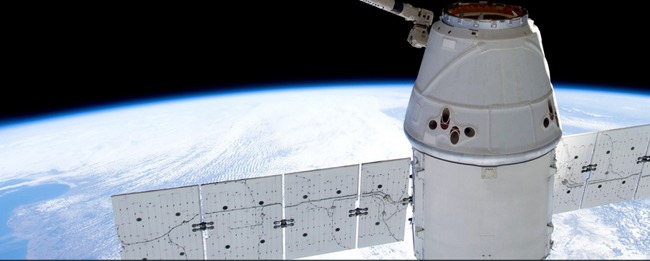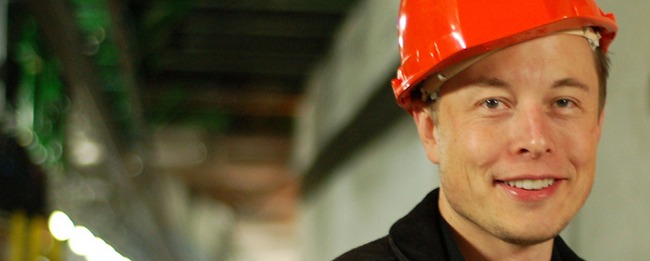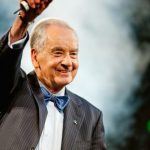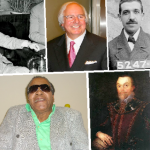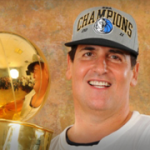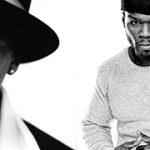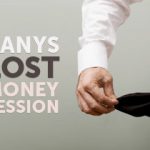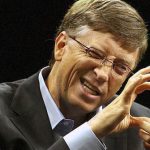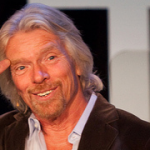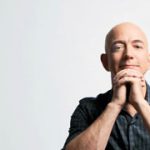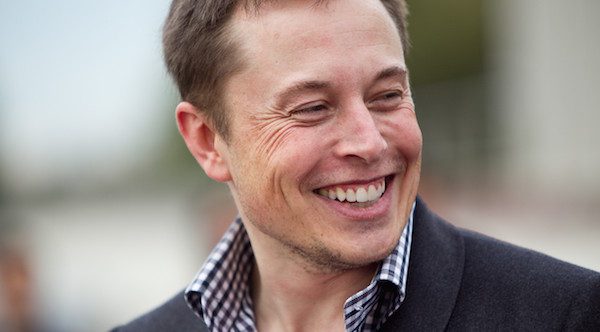
I used to think that Elon Musk was just another billionaire entrepreneur.
Now I realize Musk is a super hero. I’m not just saying that because Robert Downey, Jr. used Musk as real-life inspiration for Iron Man’s Tony Stark. I really think Elon has super powers:
- Musk can predict the future
- Musk has a super-human intellect
- Musk has the ability to work forever without stopping
He also has lots of high-tech gadgets, like his own rocket ships and a device with a holographic 3d interface. Elon Musk is a utility belt away from being able to take on super villains.
In all seriousness, Musk is one of the most influential entrepreneurs of the 21st century. If he keeps succeeding at this unprecedented rate, history will know him as the man who ushered in the age of electric cars, solar paneled homes, and private space travel. Below I’ve carefully compiled 15 lessons for business and startups from Elon Musk.
Who is Elon Musk?
- Elon Musk was born on June 28th, 1971 in South Africa.
- Musk moved to Canada in 1988 at the age of 17 to avoid service in the South African military.
- Musk earned undergraduate degrees in business and physics from The University of Pennsylvania.
- In 1995, Musk dropped out of Stanford University to found his first company.
- Musk is a twice-divorced father of five.
- Musk’s job is the CEO of Tesla Motors, the CEO and CTO of SpaceX, and the chairman of SolarCity. His 2013 salary is over $78 million.
- Musk’s net worth was estimated in September 2013 at $6.7 billion.
- Like Warren Buffett and Bill Gates, Elon Musk has pledged to give all of his money to charity.
Photo by Brian Solis, via Wikimedia Commons
Companies Started by Elon Musk:
Musk is one of only two people ever to found three billion dollar companies.
15 Business & Startup Lessons from Elon Musk
#1 Think Out of this World
“[Elon Musk] is very much the person who, when someone says it’s impossible, shrugs and says, ‘I think I can do it.”
Max Levchin, PayPal Co-Founder
Elon Musk isn’t here just to make companies; he’s here to make history.
His innovations in the auto industry have him being compared to Henry Ford and Jon Favreau famously interpreted Tony Stark (a.k.a. Iron Man) on Musk. The grandiosity of his goals haven’t escaped Elon:
“There was the advent of single-celled life, multicelled life, the development of plants, then animals. On this time scale, I’d put the extension of life to another planet slightly above the transition from life in the oceans to life on land.”
Elon Musk to Inc.
That’s right. Musk just put one of the items on his to-do list on the same scale as the development of sentient life. It’s plausible. SpaceX is seriously planning to be build a greenhouse and eventually a colony on Mars.
#2 Look for Opportunities in Emerging Industries
Musk only starts companies in emerging fields
In 1998, that emerging field was the Internet. Zip2 (and later PayPal) both succeeded thanks in large part to getting in on the ground floor of Internet boom.
Next, Musk identified three more emerging industries and got in on the ground floor on all three. SpaceX (space transportation), Tesla Motors (electric cars), and SolarCity (solar power) have all benefited from the high growth potential and low-competition that comes with being a pioneer.
# 3 The Quality of the Product Comes First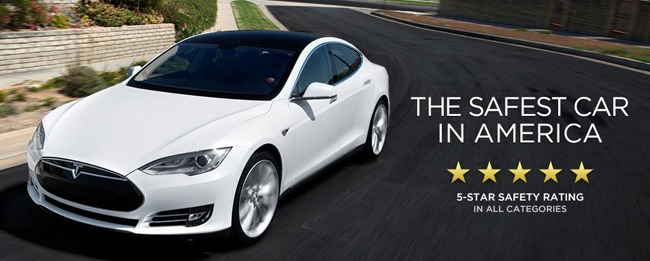
“I’d say stay very focused on the quality of the product. People get really wrapped up in all sorts of esoteric notions of how to manage etc., [but] I think people should get much more focused on the product itself – how do you make the product incredibly compelling to a customer – just become maniacally focused on building it better. I think people get distracted from that.”
Elon Musk, from Rock Solid Finance pioneer new territory.
#4 Be Prepared to Pivot
To pivot in business is to change direction while keeping one foot grounded where you started.
That’s exactly what Elon Musk did when he turned X.com (online bank) into PayPal (a global payment transfer provider). The change rendered X.com totally unrecognizable, but Musk was able to use much of its resources. Those resources included an innovative method of securely transferring money online through the recipients email address, which Musk had developed himself.
The pivot was a gargantuan success: once PayPal became featured on Ebay, its use exploded.
#5 Embrace an Exit Plan
Can you imagine if Musk had stayed running PayPal? He’d still be rich and successful – but there would be no electric sports cars or rocket ships to his name. Thankfully, Musk long ago learned how to extricate himself from his own startups.
In 1995, Musk founded Zip2 (an online city guide) and in 1998 he sold it to Compaq for $307 million. Musk’s portion was $22 million. He was 28-years-old and free to do whatever he wanted.
That meant founding X.com. Again, Musk jumped ship after a couple of years, selling PayPal for to Ebay in 2002 for a cool $1.5 billion. For his trouble, Musk got $165 million in Ebay stock. Now Musk had enough personal capital to start the pair of truly extraordinary businesses that he still runs today.
When you start a business, you should have an end in mind. Michael Dunlop recently wrote about how to make your website your millionaire exit plan.
#6 Invest Earnings into New Businesses
Both times Musk cashed in a company for millions of dollars, he invested at least 45% of his earnings back into a brand new business within the calendar year.
- $10 million of the $22 million Musk made from the sale of Zip2 went to founding X.com (later PayPal).
- $100 million of the $165 million made from the sale of PayPal went to founding SpaceX.
Musk also invested heavily in Tesla Motors (33,076,212 shares) and SolarCity (20,724,991 shares). It’s the ownership of these three companies that constitutes the vast majority of Musk’s $6.7 estimated wealth.
#7 Hire Carefully, Fire Fast
Musk is known to be meticulous about building his staff:
“I think you definitely don’t want to grow too fast. Make sure that every person you hire you really need to hire that person.”
Elon Musk
Elon has called hiring people his “biggest single challenge”:
“I have an exceptionally high standard for people that get hired, and especially for SpaceX. We really aspire to hire quite literally the best people in the world at their job. Finding such people is so hard… When we find them, we are generally able to attract them to the company… But the number one issue for me is finding superlatively talented people. I think we’ve been fortunate to find some very, very talented people at SpaceX, but that is always the governor on growth.”
Elon Musk
He’s quick and unsentimental when it’s time to correct a hiring mistake:
“One lesson I learned [at PayPal] is to fire people faster. That sounds awful, but I think if somebody is not working out, it’s best to part ways sooner rather than later. It’s a mistake to try too hard to make something work that really couldn’t work.”
Elon Musk
#8 Be Your Own Happiest Customer
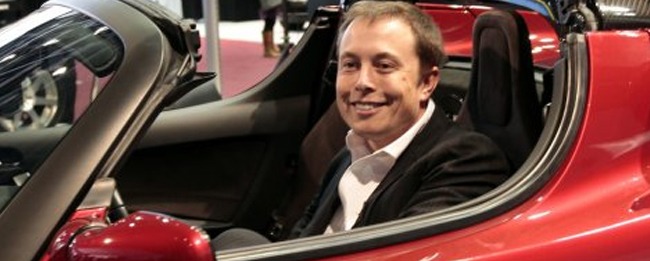 Musk loves the Tesla Model 6 so much, he’s going to drive in it across the USA next year with his five young sons. On September 5th, 2013, Musk announced via his Twitter: “Just finalized the LA to NY family road trip route in Model S. 6 day, 3200 mile journey with only 9 hrs spent charging.”
Musk loves the Tesla Model 6 so much, he’s going to drive in it across the USA next year with his five young sons. On September 5th, 2013, Musk announced via his Twitter: “Just finalized the LA to NY family road trip route in Model S. 6 day, 3200 mile journey with only 9 hrs spent charging.”
This is more than just a great PR campaign to highlight all of Tesla’s new charging stations across the country. By putting himself behind the wheel of his company’s product for weeks on end, Musk will gain first-hand insight into how to improve Tesla’s premiere electric car.
In the case of SpaceX, Musk gets extra motivation for the company to succeed from his desire to one day be a SpaceX customer. The sooner the better: “I don’t want to be doddering around up there, needing a quadruple bypass,” he says. His plan is to be a on a rocket to Mars by 2030, when he’ll be 61 years old.
Many great inventions and businesses start because their creator wanted the product for his/her own use. Income Diary founder Michael Dunlop’s PopUp Domination was originally developed for Michael’s own websites before he turned it into a public product.
#9 Make Failure an Option
“Failure is an option here. If things are not failing, you are not innovating enough.”
Elon Musk
Good business decisions are often very safe. But great business decisions are almost always risky.
All of Musk’s business successes have come in emerging industries with a dubious history of turning a profit: the Internet (in 1995), electric vehicles, space travel, and solar panels. Musk knew going in that there was a high risk of failure, but while he never planned on failing, he always had a contingency plan to allow for failure.
For instance, when Musk set about sending rockets into space, he knew that the first rocket likely wasn’t going to succeed. That’s why he invested enough money into SpaceX ($100 million) to “make failure an option” and allow for up to three launches.
Musk also sees failure as an important part of the creative process: “If every time somebody comes up with an idea it has to be successful, you’re not gonna get people coming up with ideas.”
#10 Leadership Requires Putting Yourself Forward
Musk’s leadership was tested like never before on August 2, 2008. It was the day of SpaceX’s third launch attempt and the future of the company was on the line.
The Falcon 1 launch vehicle made it through the first and most most dangerous stage – the one where it actually breaks away from Earth’s gravitational pull. But the rocket faltered soon after and they lost communication. That was it: mission failed
The 300+ SpaceX employees in attendance were heartbroken – and fearing for their very livelihoods – when Musk stepped up to speak to the crowd. Elon revealed that he had already secured further investment in SpaceX so they would be able to continue their mission in case of complications (again, making “failure an option”). At the climax of his speech, he told his employees not what they should do, but what he was going to do: “For my part, I will never give up,” Musk said, “and I mean never.”
Dolly Singh recalls the crowd’s response:
“I think most of us would have followed him into the gates of hell carrying suntan oil after that. It was the most impressive display of leadership that I have ever witnessed. Within moments, the energy of the building went from despair and defeat to a massive buzz of determination as people began to focus on moving forward instead of looking back. This shift happened collectively, across all 300-plus people in a matter of not more than five seconds.”
SpaceX’s very next launch was a complete success. On September 28th, 2008 the Falcon 1 became the first privately built rocket to achieve earth orbit.
Photo by U.S. Army Kwajalein Atoll (USAKA) [Public domain], via Wikimedia Commons
#11 Be Driven to Work Hard
“If you don’t mind things being really hard and high risk, then starting a company is a good idea. Otherwise, it’s probably unwise. It will certainly stress you out. So I think you have to be pretty driven to make it happen. Otherwise, you will just make yourself miserable.”
– Elon Musk
Musk’s work ethic is legendary. “He is a machine,” says Dolly Singh, who worked under Musk as the head of talent acquisition at SpaceX.
Elon is said to regularly put in 100 hours of work week between Tesla and Space X – and he considers this the bedrock of his business success. When asked to give advice to entrepreneurs, Musk offered, “Just work like hell. If other people are putting 40 hour work weeks and you’re putting in 100 hour work weeks, even if you’re doing the same thing, you know that you will achieve in four months what it takes them a year to achieve.”
To aspiring entrepreneurs, Musk doesn’t mince words: if you’re lazy, don’t waste your time starting a business.
Photo by marcella bona via Compfight cc
#13 Know Your Limits
Musk may be the smartest and hardest working entrepreneur of the 21st century, but even has limits.
Back in 2006, Elon had an idea for a solar panel company. But he knew that if he started it, he would be overextended and unable to give everything necessary to SpaceX and Tesla. So he shared his idea with Peter and Lyndon Rive, who founded SolarCity in July of that year. Musk was the principle investor in the company and has served as chairman of the board since its inception – but he’s kept a safe enough distance so that it doesn’t eat up too much of his time and energy.
Solar isn’t the only industry he sees huge opportunity. Supersonic jets, hyperloops, and virtual reality interfaces have all earned his attention. He’s skimming the surface in these fields, but not diving in headfirst.
#14 Find Your Higher Purpose
Colonizing Mars is much more than a business decision. It’s about the future of the human species:
“I think it’s important that humanity become a multi-planet species. I think most people would agree that a future where we are a spacefaring civilization is inspiring and exciting compared with one where we are forever confined to Earth until some eventual extinction event. That’s really why I started SpaceX.
Elon Musk
Musk used to struggle with his purpose until he found out what really mattered for him. He described the realization:
“I always had an existential crisis, trying to figure out ‘what does it all mean?’ I came to the conclusion that if we can advance the knowledge of the world, if we can expand the scope and scale of consciousness, then, we’re better able to ask the right questions and become more enlightened. That’s the only way to move forward.”
Elon Musk
#15 Start Businesses that Align with Your Higher Purpose
Musk’s mission to “expand the scope and scale of consciousness” has had him looking beyond simple profit benchmarks to found businesses that are making a global impact for good. Every day when Musk goes to work, he knows he’s helping to reduce carbon emissions, produce renewable energy, and help save the human race in case of collision with an asteroid.
How’s that for motivation?
The first step to leaving a legacy is to answer Musk’s existential question for yourself: “What does it all mean?” When your business is aligned with your purpose, you will work harder, smarter, and better to achieve your goals.
Inspired Yet?
If you want more lessons from legendary entrepreneurs, check out our articles on Richard Branson and Steve Jobs.

